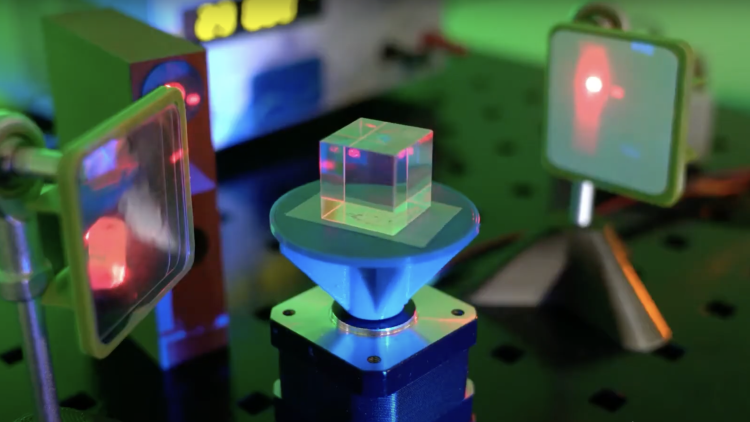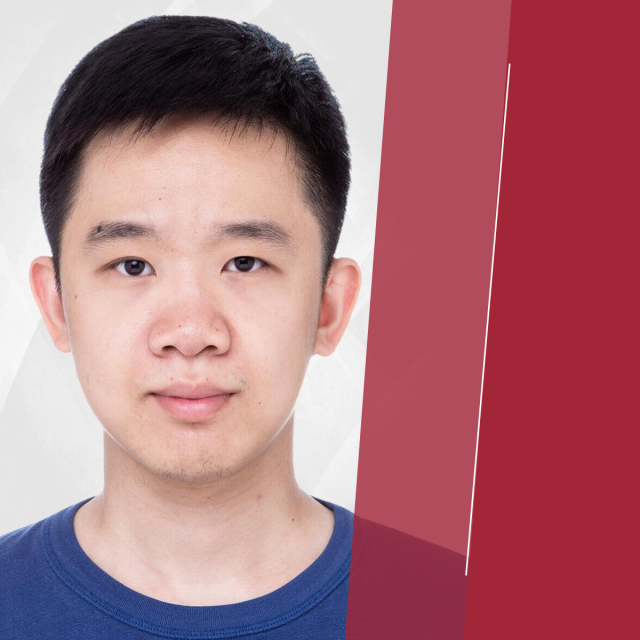
Physics Doctoral Program
Gain the kind of leading-edge research experience that’s coveted by academic and industrial employers alike in the Stevens physics Ph.D. program.
Our Department of Physics is committed to advancing both science and scientists. Here, you’ll deepen and broaden your understanding of technology and physical science while learning about the latest experiential and theoretical innovations in these fields.
Stevens’ physics faculty are leaders in their fields that attract significant government and industry funding, are well-published in high-profile journals, and have created patents and several start-up companies. Through resources like the Center for Quantum Science and Engineering and the nation’s first campus hybrid quantum-communications network, you can conduct research spanning from quantum foundations to applied quantum chips.
The Department of Physics offers dynamic opportunities to explore leading-edge research in collaboration within and beyond the New York City metropolitan area. You'll be able to study under a faculty mentor in the area that you find most exciting, including:
Nonlinear On-Chip Quantum Photonics
Topological Physics
2D Materials
Coherence Optics
Quantum Machine Learning
Quantum LIDAR
Quantum Gravity
Other Fundamental and Applied Research Themes
The Stevens Advantage: Widen Your Career Options
Stevens enjoys strong partnerships with leading universities and research centers in the region and around the world, and many physics Ph.D. students receive job offers as professors and postdoctoral researchers immediately upon graduation. Our students also take advantage of Stevens’ proximity to New York City’s financial industry hub and its thriving start-up community for research collaborations, networking and employment opportunities.
Learn more about what makes graduate education from Stevens a unique experience:
Graduate Cooperative Education Program: Available with two tracks, your co-op experience can serve as a starting point for a research project or augment your on-campus research with complimentary experience.
International Student Experience: Tap into our expanding worldwide network of research, academic and alumni partners and mentor with our expert faculty in a number of federally-designated STEM degree programs. Optional Practical Training (OPT) or Curricular Practical Training (CPT) is available to gain work experience in your major/field of study.
State-of-the-Art Research Labs and Facilities: Build, tinker and test your designs in Stevens' MakerCenter, Prototype and Object Fabrication Lab, or numerous other research facilities.
Research Opportunities: Renowned faculty, labs and research centers – as well as industry partnerships and funding from leading national agencies – support strategic and interdisciplinary research in engineering and science.
Assistantships and Fellowships: Stevens offers funding to select graduate students in the form of teaching assistantships, research assistantships and fellowships. Limited in number, these highly competitive opportunities are awarded to exceptional candidates based on merit.
Expanded Learning Options: The Schaefer School offers new opportunities for doctoral students to do coursework at universities in the New York City area – and around the world – through our growing list of academic partnerships with other prestigious universities. Learn more about our latest partnerships.
Hands-On Physics Research
At Stevens, you have the ability to join research groups with students at a variety of levels of experience, and outstanding faculty so you can learn cutting-edge technology as a team, just like in the real-world. In our state-of-the-art research labs and facilities, you'll have the opportunity to engage in experiential learning.
Faculty in the department are at the forefront of research and entrepreneurship. Many hold patents in emerging technology, including sensors and optics.
Program Admission Requirements
Who Should Apply?
We welcome applicants who have a master’s degree in physics or quantum science and engineering (up to 30 credits may transfer to Stevens’ Ph.D. program).
Exceptionally well-qualified applicants with a bachelor’s degree in physics or quantum science and engineering or a related field may also be considered for direct admission to the Ph.D. program.
Requirements
Bachelor’s or Master's degree, with a minimum GPA of 3.0, from an accredited institution
Transcripts from all post-secondary institutions attended
Two letters of recommendation (academic or professional only; Select Ph.D. programs require a third letter of recommendation)
Statement of Purpose
$60 non-refundable Application Fee
Proof of English language proficiency
A competitive GRE or GMAT score (optional)
Resume/CV
Writing sample(s). All applicants are encouraged to submit a lab report (preferable) or paper that they wrote, individually, for an engineering course. Applicants who have published a journal article are also encouraged to submit a copy of their article.
For more complete details, visit our General Admissions Requirements page.
Curriculum Overview
View objectives, outcomes, and other Ph.D. curriculum details in the most recent academic catalog.
View Academic Catalog >
Each Ph.D. curriculum must also adhere to the institution wide standards listed in the doctoral handbook.
View Doctoral Handbook >
If you have existing graduate credits or experience in this area of study, contact [email protected] to discuss opportunities to include it in the curriculum.
Fellowships & Assistantships
Information about assistantships and fellowships can be found here.
STEM Designated Degree Programs
The four fields comprising STEM – science, technology, engineering and mathematics – offer a wide variety of professions that are classified as some of the highest-growing and highest-paying jobs right now and in the future.
And for international students, the demand for STEM-related professionals in the United States can open the door for an extended stay.
An ever-growing list of eligible programs across all levels is available here.
A Tech Forward Education
Physics Ph.D. Facts & Statistics
Related Programs
Interdisciplinary Programs
The challenges facing today's scientists and engineers often exist at the intersection between various disciplines–whether between engineering and science or fields within individual disciplines. At Stevens, engineering and science come together under one roof, fostering a proactive, interdisciplinary environment that encourages results-driven collaboration and unique, innovative problem solving.
Ph.D. in Mathematics
Develop and conduct original, cutting-edge mathematical research that applies directly to real-world challenges with a Ph.D. in mathematics from Stevens.


